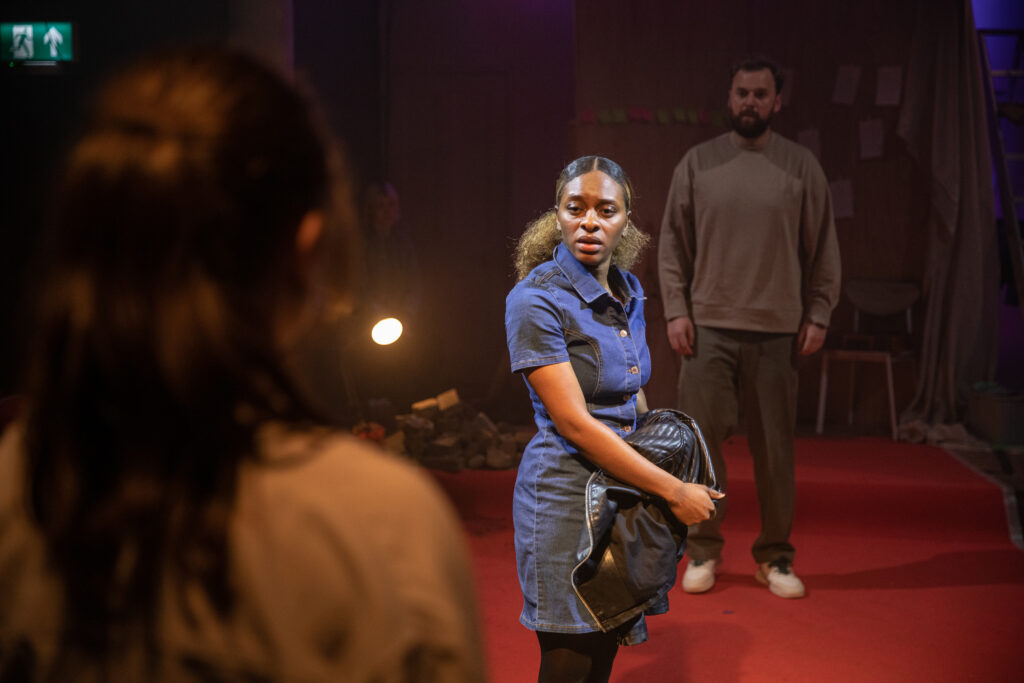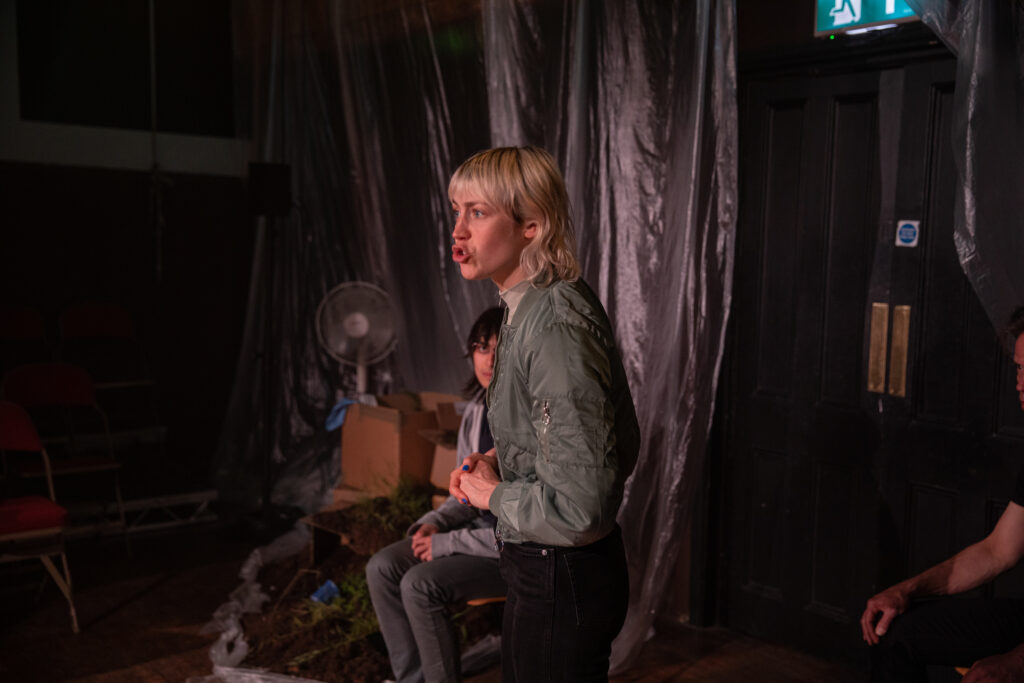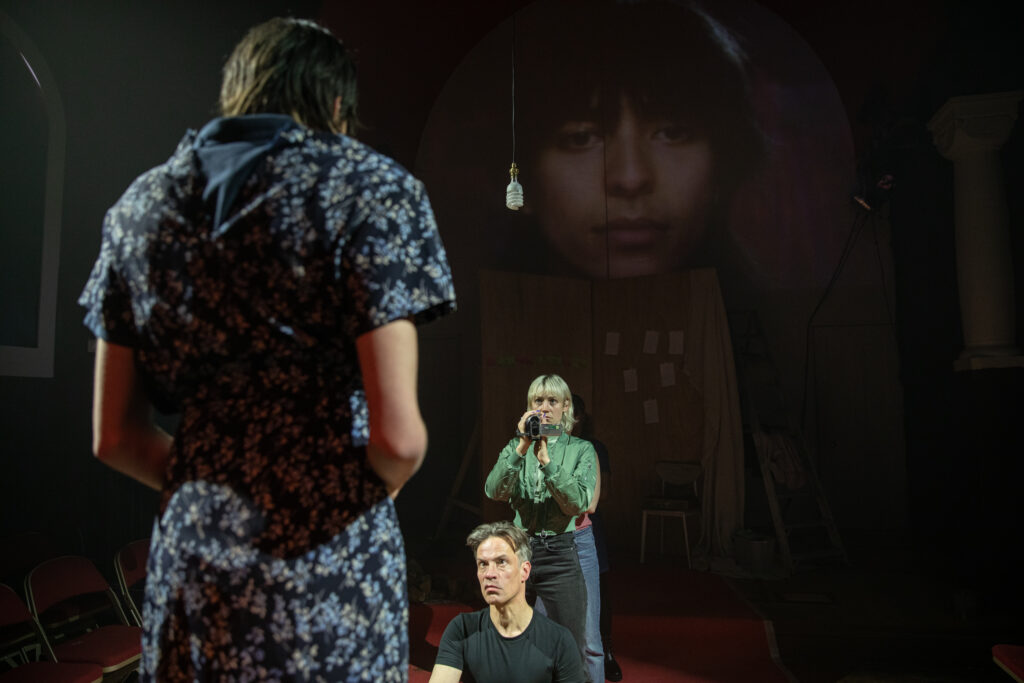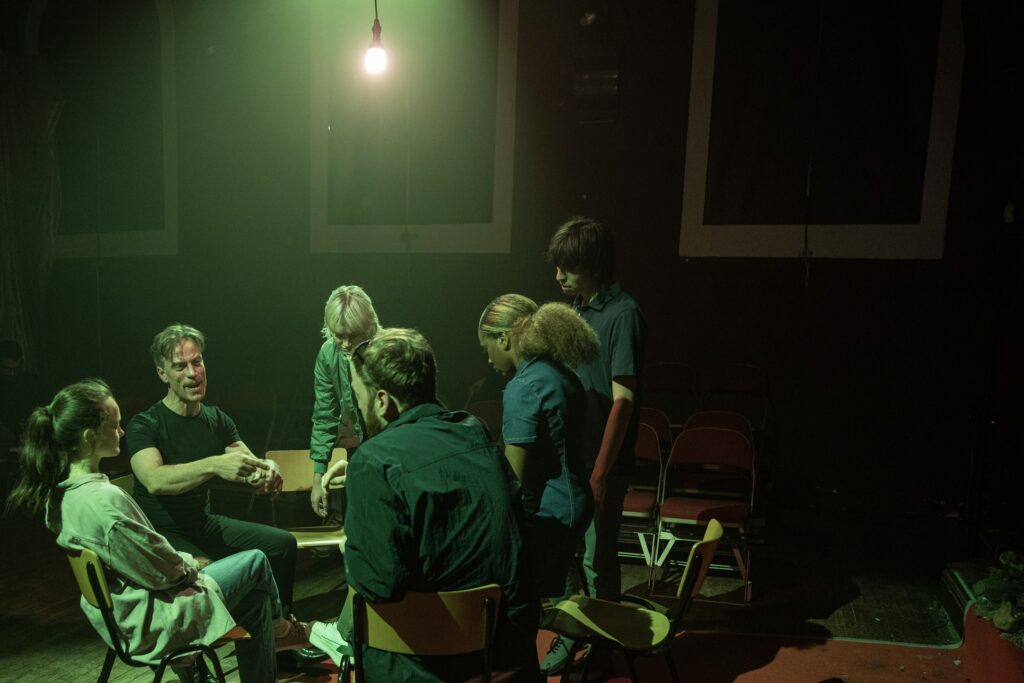[AD – PR invite*]
★★★★
Last week I had the opportunity to review some new writing on demand, courtesy of theatre company ‘Mrs C’s Collective’ and The Space Theatre on London’s Isle of Dogs. Francis Grin’s new play ‘DREAM SCHOOL’ is part of a wider project ‘A Call for Safe Practice’, which looks at how organisations can safely depict trauma in the arts. I was formally invited to the venue in person, but the theatre is difficult to reach from Canterbury and I wasn’t free to attend any of the in-person performances. However, I welcomed being able to watch the show online after its run and provide my thoughts on this thought-provoking piece of work.
Synopsis
To briefly summarise, DREAM SCHOOL is a play that looks at traumatic situations and how they impact on future life experiences. Centring around a university cult and based on a true story, the plot is intentionally uncomfortable, covering topics that include sexual exploitation, sexual abuse, intimidation, psychological abuse, self-harm and suicide.

The cult leader and antagonist is Bobby (Justin Butcher), the father of student Celeste (Iona Champain), who moves into his daughter’s dorm after being released from prison. Straightaway there are red flags with Bobby’s coercive behaviour and the students change from carefree first years to traumatised young people who have been shamed at the hands of this vile man. Betty (Jennie Eggleton) is the first of the students in the dorm to be subject to Bobby’s sickening behaviour and ten years on, she is ready to tell journalist boyfriend Alex (Charlie Cassen) exactly what happened. The play alternates between the past and present, bringing to light the shocking events that happened and how they have impacted the students’ lives today.
Symbolism
Objects have a significant meaning to the story, with a cooking pan bringing to light some horrific memories for Betty. The creative team’s decision to highlight the object’s negative connotation is just one example of the sensitive attitudes towards trauma shown throughout the production. The lead character Betty has rash, extreme reactions to seeing the pan and quickly the material transitions into a flashback that explains how the object is a source of pain. It is effectively done, showcasing the significance of the item to the past and present. Props have been used with careful consideration to their wider impact on the story.
Character development
One of the things I found hard with completing a digital review was having the power to rewind and pause the content. There were moments where I needed clarification over some of the characters but I refrained from going back, as I wanted to mimic seeing the performance live from my living room. The scenes with Celeste in particular could have provided the audience with a more transparent insight into her character. With her father as the cult leader, it is difficult to make conclusions on where the character’s allegiances lie. She is clearly a victim of intimidation (possibly from a young age), but her abusive father is the antagonist after all. I wanted the character to have a more central role, so that these questions could be cleared up.

In the cases of Betty and Alex, character development is front and centre. Without giving away any spoilers, Betty’s fragmented memories are turned on their head, making you question who the character really is and what she is capable of. Alex comes across as ambitious, so much so that Betty’s mental health suffers, and the piece comes full circle at the end with Alex revealing his innermost thoughts.
Use of movement and music
Bobby is a master of ‘mind-control’ (manipulation) and Butcher is utterly terrifying as the abuser and leader of the cult. There is a segment at the start of the production where the students mimic his every move to music and it is a visual representation of his power over them.
A piece of music is used repetitively to trigger reaction in the victims, proving how difficult it is to truly move on from the horrific experience. This is further evidence of Mrs C’s Collective and The Space Theatre’s careful and considered approach to trauma.

How are the triggering themes?
I personally found it too traumatic to watch the performance in one sitting. Grateful for the pause option within the on demand service, I needed a moment away from the screen about half way through as the content was deeply distressing.
Despite the amount of thought that has gone into the safe portrayal of triggering subject matters, the material remains uncomfortable to watch and will be too much for some viewers. In my opinion, it would work better as two short acts, providing the audience with an interval to reflect on what they are watching.

Final thoughts
An impactful new play directed by Charlotte Everest, DREAM SCHOOL cleverly intertwines past and present events in its storytelling. If you can stomach the subject matter, the production will consume your thoughts afterwards. The actors performed the play with vulnerability and you can clearly see that they have not taken the roles lightly. Whilst I found the material difficult to watch at times, the theatre company is certainly one to watch and I look forward to hearing more about their future work.
Thanks for reading my blog today.
Love Kat xxxx
*I was given access to the live stream of DREAM SCHOOL at The Space Theatre in exchange for a review.

Comments